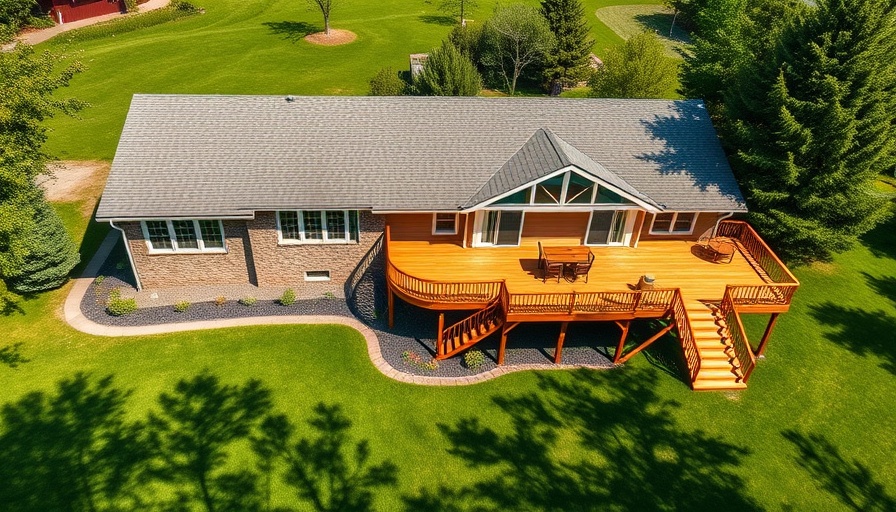
Understanding the Legal Framework for Basement Conversions in NYC
Basements in New York are often seen merely as storage spaces or recreational dens, but the legal framework surrounding their conversion into habitable dwellings is complex yet essential for homeowners to understand. For those considering transforming their basements into apartments or livable spaces, acknowledging the intricate web of regulations can make a substantial difference in both compliance and safety.
The Significance of Zoning Regulations
New York City's zoning regulations play a pivotal role in determining whether a basement can be legally converted into a residential unit. The Department of City Planning oversees zoning laws that specifically address characteristics such as unit requirements, ceiling heights, and necessary amenities for habitable spaces. These regulations often classify basements differently from above-ground units, which can complicate the conversion process.
Common Misconceptions About Basement Dwellings
One common misconception is that any basement can be converted into a living unit without formal procedures. This is not true. There are strict requirements that a basement must meet for conversion to be legal. These include adequate light, proper ventilation, and safe egress points. Homeowners should dispel this myth before proceeding with renovations to avoid costly fines and potential renovations.
Safeguarding Your Investment: The Importance of Proper Permits
Failing to obtain the necessary building permits can lead to severe legal consequences, including fines and the requirement to restore the space to its original condition. By ensuring that all modifications align with city codes and regulations, homeowners can protect their investments, enhance property value, and avoid disputes with neighbors or city officials. Moreover, a legally compliant basement can provide revenue opportunities through rentals or serve as supportive housing for multigenerational families.
Future Predictions for Basement Conversions in New York
As real estate trends in New York continue to evolve, basement conversions are likely to gain increasing importance. The city’s housing crisis underscores a need for innovative solutions to maximize housing availability. With legislators exploring policies promoting the conversion of underutilized spaces, we may see relaxed regulations in the future, making it easier for homeowners to adapt their basements legally.
Steps to Ensure a Smooth Conversion Process
When embarking on a basement renovation project, homeowners should follow a few critical steps to ensure they remain compliant. Begin by:
- Consulting a zoning expert or real estate attorney who can outline your rights and responsibilities.
- Reviewing local zoning bylaws to understand specific requirements for conversion.
- Obtaining all necessary permits before initiating any construction work.
- Engaging licensed contractors familiar with local compliance, ensuring work is done efficiently and legally.
Real Stories: The Value of Legal Compliance
A local Brooklyn homeowner, after a lengthy legal battle due to unauthorized modifications, shared, "Navigating the rules wasn’t easy, but the peace of mind knowing my basement was compliant was worth the extra effort. It’s now a livable space that complements my home and boosts its value!" This story emphasizes the real-world impact of properly adhering to legal guidelines.
Emotions Involved in the Transformation Journey
Transforming a basement can evoke a range of emotions for homeowners—from excitement over a potential rental income to frustration over looming regulations. Acknowledging these emotions is crucial in navigating the complex legal landscape; being well-informed about laws can mitigate anxiety and empower decision-making.
Conclusion: Why Legal Compliance Matters
Understanding the legalities involved in basement conversions is not just a bureaucratic requirement—it's integral to enhancing property value and ensuring the safety of residents. Given the potential growth of this sector, homeowners are encouraged to stay informed on zoning regulations and legal frameworks governing basement renovations.
As you embark on your basement journey, remember that being informed is key. For more tailored advice on navigating the New York basement conversion landscape, consider reaching out to real estate professionals or legal experts equipped to guide you through the process.
 Add Row
Add Row  Add
Add 




 Add Row
Add Row  Add
Add 

Write A Comment